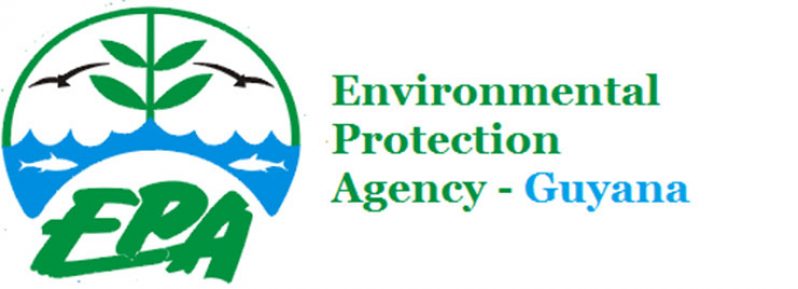TOMORROW, we have the opportunity to join with millions of people around the world in celebrating ‘International Day for Biological Diversity’. The United Nations first proclaimed this significant day in 1993 and it has since been observed annually. The aim of the day is to increase the understanding and awareness of biodiversity issues facing our planet. Each year, a suitable theme is selected.
This year, the celebrations will be held under the theme: “Celebrating 25 Years of Action for Biodiversity”. This year marks the 25th anniversary since the Convention on Biological Diversity (CBD) was enacted and highlights progress made in the achievement of its objectives at both national and global levels.
LIVING IN HARMONY WITH NATURE
History shows, in a country’s quest for development, one of our greatest downfall has often been simply failing to recognise the important connection – even dependence; all humans have on the natural world. All life is inevitably dependent on nature’s ecological systems and their processes to provide clean air and water, assisting in food security through pollination services and even controlling the spread of disease vectors.
WE NEED BIODIVERSITY
Statistics show that 31 per cent of the Earth’s land is forested but continues to be under threat due to deforestation. Yet, we know that forests are the lungs of our planet – Earth. They produce oxygen and act as a huge carbon sink, a significant link in our fights against climate change. According to a recent study at the North Carolina State University, one large tree is able to supply a day’s supply of oxygen for four people and collectively, trees absorb up to 48 pounds of carbon dioxide per year.
The average citizen of the world is now coming to learn and appreciate the integral ties man with the Earth and truly appreciate its value.
Local initiatives in Guyana to promote conservation and protection of our Biodiversity
1. Biosafety – In 2008 Guyana acceded to the Cartagena Protocol on Biosafety and has since developed a National Biosafety Framework, a draft policy on Biosafety, a Biosafety Bill and four sets of draft Regulations.
2. A national lab at the National Agriculture Research and Extension Institute (NAREI) has been equipped to conduct testing of Genetically Modified Organisms (GMOs).
3. Training workshops on Biosafety to ensure contribution to the Biosafety Clearing House (BCH).
4. Access to Genetic Resources and Benefit Sharing (ABS) Policy was approved and draft ABS Regulations were also developed.
5. Nagoya Protocol – In 2014, Guyana became the first Caribbean country to accede to the Nagoya Protocol on Access to Genetic Resources and Benefit Sharing (ABS).
6. National reports, national Strategies and Action Plans were developed and submitted to the UNCBD. Amidst the challenges, all reporting requirements have been met.
7. Protected Areas – two (2) phases of the Guyana Protected Areas System (GPAS) project, which resulted in the development and enactment of the Protected Areas Act 2011, and paved the way for the establishment of the Protected Areas Commission (PAC) and subsequent Protected Areas Trust Fund.
8. Designation two (2) protected areas in the process, namely, the Kanuku Mountains and Shell Beach Protected Areas- the Kanuku Mountains and Shell Beach Protected Areas were accomplished. This was in addition the Iwokrama Centre for Rainforest Conservation and Kaieteur National Park which were established prior.
9. Wildlife Management – In 2013, the Wildlife Management and Conservation Regulations were enacted. This paved the way for two areas of focus; the establishment of conservation areas and a system for licensing of domestic wildlife trade.
In 2017, the EPA restructured to focus on Biological Resources Management with two focal sub-areas; Conservation and Sustainable use of biodiversity as well as Coastal and Marine Resources Management.
NOT FORGETTING TRADITIONAL KNOWLEDGE
Recognising the importance of traditional knowledge in biodiversity conservation, there is a project currently being implemented in Guyana entitled: Integrating Traditional Knowledge in National Policy and Practices. This is a UK-funded (a Darwin Initiative) project which brings together several local partners namely: the Ministry of Indigenous Peoples Affairs, the Protected Areas Commission, the Environmental Protection Agency and the North Rupununi District Development Board, among others. This project supports Guyana’s obligations under the CBD as Guyana and other signatory countries work towards meeting the CBD Aichi Targets by 2020. In particular, this project addresses Aichi Target 18 which states:
“By 2020, the traditional knowledge, innovations and practices of indigenous and local communities relevant for the conservation and sustainable use of biodiversity, and their customary use of biological resources, are respected, subject to national legislation and relevant international obligations, and fully integrated and reflected in the implementation of the Convention with the full and effective participation of indigenous and local communities, at all relevant levels”.
Several communities have been engaged to date through the project in community workshops and training in participatory videos.
Embracing partnerships
25 years later, Guyana continues on an upward trajectory towards conservation and sustainable use of biodiversity. This will become even more important as we move towards a green state. Let’s ensure the future of Guyana’s biological wealth and our health by first becoming educated, then taking the necessary action.
Happy International Biodiversity Day!
You can share your ideas and questions by sending letters to: “Our Earth, Our Environment”, C/O ECEA Programme, Environmental Protection Agency, Ganges Street, Sophia, Georgetown, or email us at eit.epaguyana@gmail.com or follow us on Facebook and Instagram.



.jpg)










